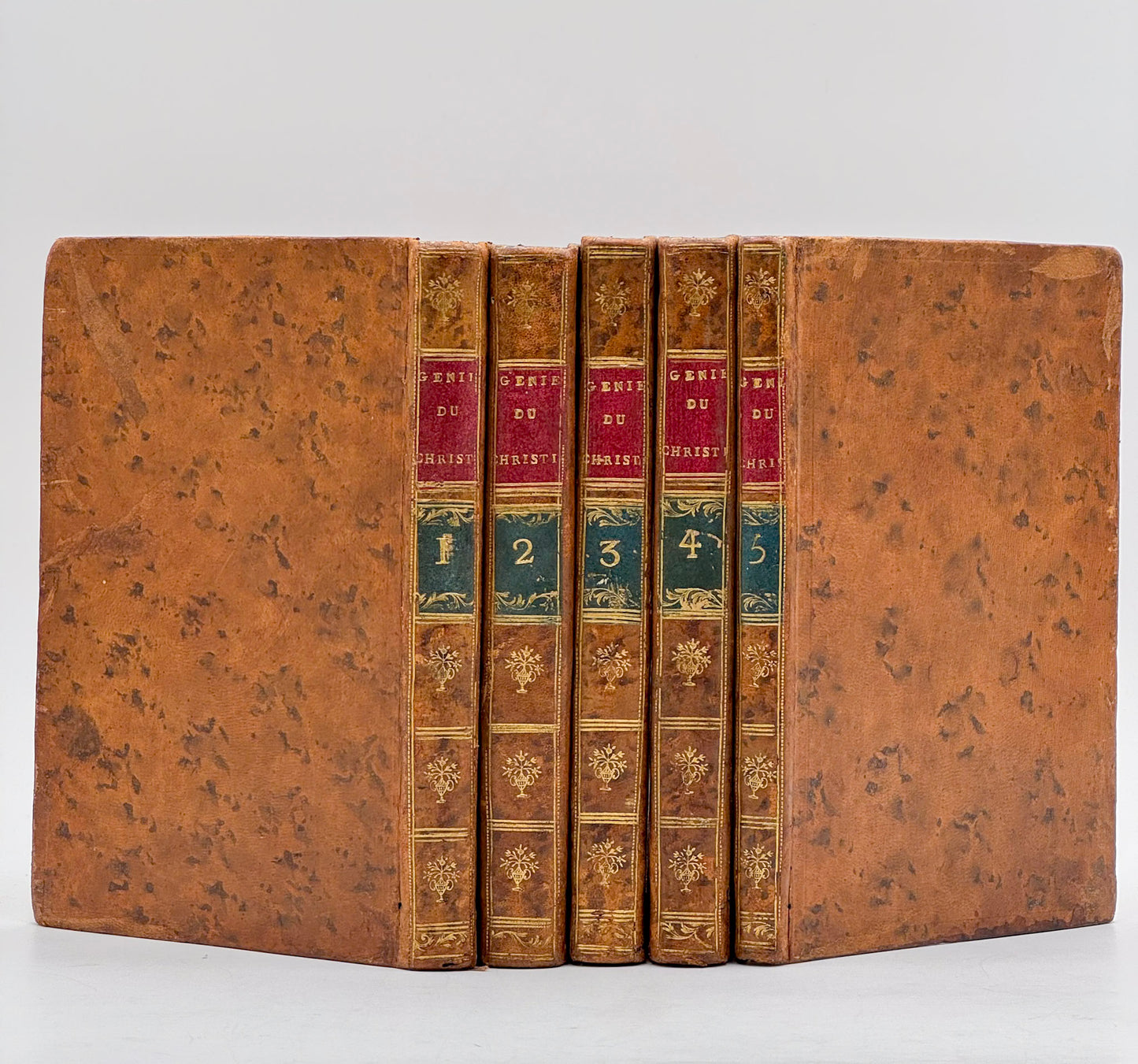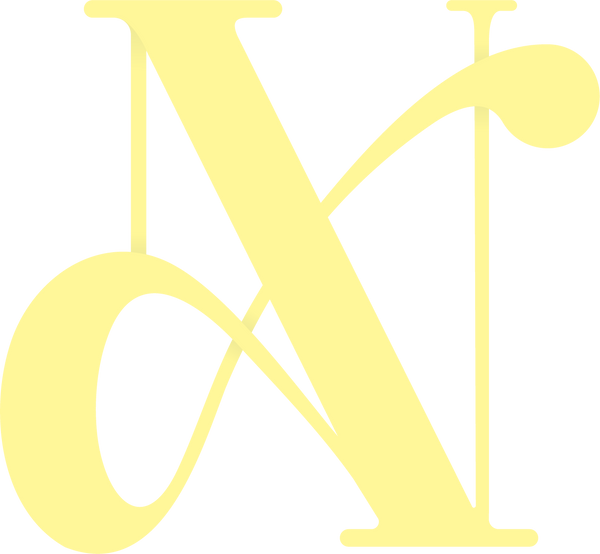Librairie Alexis Noqué
SKU:0365
François René de Chateaubriand
Génie du Christianisme ou Beautés de la Religion chrétienne
Génie du Christianisme ou Beautés de la Religion chrétienne
1802
Couldn't load pickup availability
CHATEAUBRIAND (de), François René. Génie du Christianisme ou Beautés de la Religion chrétienne.
Paris: Migneret, An X–1802.
Octavo (198 × 133 mm). Five volumes. Vol. I: x, 396 pp. (pagination errors as issued); Vol. II: (2) ff., 342 pp.; Vol. III: (2) ff., 304 pp.; Vol. IV: (2) ff., 344 pp.; Vol. V: (2) ff., 85 pp., 14 pp., (1) f., 14 pp., 75 pp., (1) f.
Contemporary marbled calf, smooth spines gilt with central tools, red morocco lettering-pieces and green morocco volume labels, gilt roll to board edges, red edges.
Rare first edition in its strict contemporary binding, the print run estimated at c. 4,000 copies (Sainte-Beuve).
A first-issue copy, with the characteristic pagination errors: in Vol. I a leap from p. 274 to p. 279 and a final page numbered 396 instead of 296 (an error not recorded by bibliographers); in Vol. IV the two table leaves incorrectly numbered [341]–344.
An exceptional copy, extra-illustrated with a superb 3-page autograph letter signed by Chateaubriand,Paris, Friday 15 October 1802, addressed to Monsieur Saint-Martin fils at Viré (Calvados).
This intimate and striking letter illuminates the author’s life at the precise moment when Génie du Christianisme was achieving tremendous success. Chateaubriand mentions an imminent journey to Avignon to suppress a pirated edition of the Génie, a planned return via Brittany, and — most importantly — his preparations for a diplomatic appointment in Italy, a role he indeed assumed shortly afterwards as attaché to the French legation to the Holy See.
He urges his friend to join him in Paris, in prose suffused with autumnal imagery and the melancholy of early Romanticism:
“You see the leaves fall, you hear the autumn wind in the woods — I envy your lot…”
A foundational work of early Romanticism.
The Génie exerted a decisive influence on the century to come: on Lamartine, Vigny, and Hugo in shaping meditative philosophical and religious poetry; and on French historical writing more broadly by turning attention to the Middle Ages, helping spark the Gothic revival and restoring to religion an appeal largely lost before the Revolution.
Chateaubriand himself wrote:
“The shock given by the Génie du Christianisme forced the eighteenth century out of its rut… The Génie will remain my great work, because it caused or precipitated a revolution, and began the new era of the literary century.” (Mémoires d’outre-tombe).
The work appeared with perfect timing on 14 April 1802, six days after the ratification of the Concordat — a date deliberately chosen by Chateaubriand to align his great Christian apologia with the political and religious reconciliation of Rome and Bonaparte. As the Bibliothèque nationale notes (En français dans le texte, no. 206): “The Génie arrived at precisely the right moment for a society weary of revolutionary disorder and violence.”
Copies published in 1802 were usually modestly bound, making well-preserved contemporary bindings highly desirable (Carteret).
Some light surface wear and occasional browning; otherwise a pleasing and highly important set, accompanied by a letter of remarkable literary intensity.
References: Vicaire II, 281; Talvart III, 5; Clouzot 62; Carteret I, 162 (“à rechercher en reliure du temps”); En français dans le texte 206.
Share
















